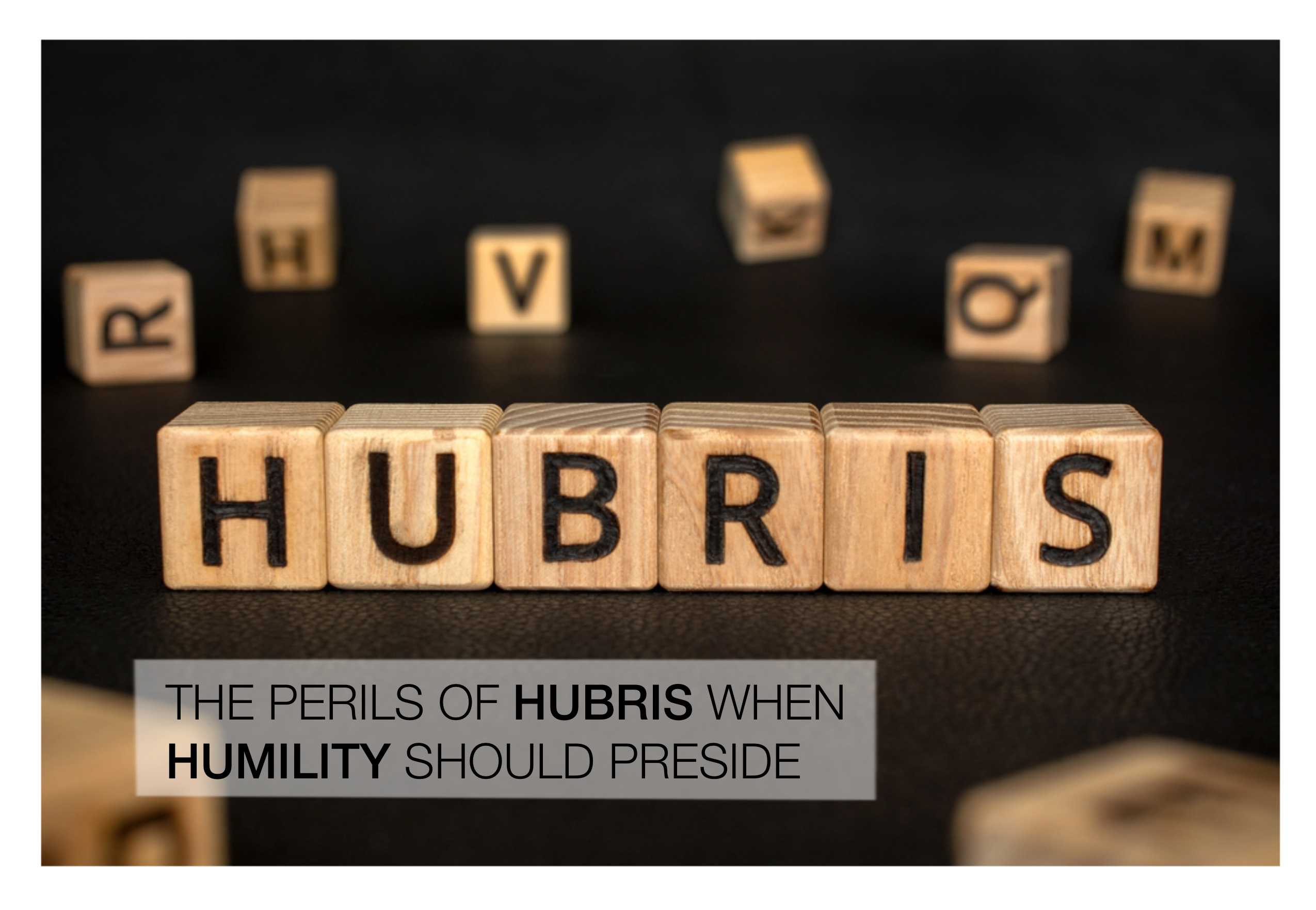When humility gives way to hubris, when ego, arrogance, superiority and pretence drive one’s actions and interactions, life takes an awkward, even perilous turn.
We see it time and time again. The much-praised CEO who holds a very public pedestal, only to fall hard when situations change for the worse – and their hubris comes back to haunt them. The politician who boasts that he’s the saviour society needs to solve its woes, only to fail and fail publicly.
Sometimes, hubris happens behind the scenes, very privately and away from public view. Imagine the scion of a wealthy family led by an aging patriarch, and who insists on receiving his eventual inheritance – whilst their parents are still alive. Regardless that their nest is generously feathered with family riches, their impatience and insistence drive their motivations and taint their interactions with family members.
Hubris is defined as excessive pride or self-confidence. In Greek tragedies, it was displayed as “excessive pride toward or defiance of the gods, leading to nemesis – the inescapable agent of someone’s or something’s downfall.”
Many individuals driven by hubris are blind to their own conceit. Either they’ve been raised or modelled by their family to be boastful, arrogant or unduly deserving. Or they never had such behaviours corrected, so they took permanent root into their character.
Can it be corrected, minimised or dealt with in such a way so as not to taint or influence those people or institutions that surround the individual? Sometimes, it’s an unavoidable eventuality. Coworking space provider WeWork had slipped from its $47 billion validation toward the edge of bankruptcy under the lavish spending and tumultuous management style of beleaguered, former CEO Adam Neumann.
Sometimes, you just can’t correct such behaviour. Elon Musk comes to mind as a billionaire who’s been feted for his phenomenal successes – Tesla and Space-X – while suffering very public throttling from his handling of X, formerly Twitter.
As a younger manager, I hated the pedestal upon which subordinates or peers placed their “leaders,” including myself. Jamie Dimon, the long-time chairman and CEO of JPMorgan Chase, rode the financial institution through the strongest markets. Yet, when bears came and hard calls were made in the face of very public losses, he was pilloried.
Humble leaders avoid the spotlight. They own their own and their team’s failures. More importantly, they deflect praise in deference to their teams. Modesty is a superpower.
How can this be addressed? If the individual lacks self-awareness of the harm or toxicity caused by their own hubris or arrogance, the answer then must start with those close to them. This may be family members, confidants, trusted advisors, even mentors who can use their roles as a trusted confidant to speak eye-opening truth to arrogance. Whether a father, sibling, family attorney or accountant, or board chairman, someone must take the lead, speaking with the support of the others, in an attempt to broach the issue and get the individual to recognise the character traits that can antagonise others.
Ego is not inherently bad. None of the individuals cited here rose to their station by being passive or lacking in self-confidence. Even rising managers must display self-confidence to spot and seize opportunities.
Misplacing pride and the pursuit of power where humility should exist, can lead to hubris that can set the stage for one’s own Greek tragedy. And when on the public arena, it can set the stage for a comeuppance that even the gods cannot help avoid.
If you’re facing issues with the hubris of a leader in your family business or organisational ranks that your inside advisors have been unable to remedy, let’s chat about how to replace hubris with humility and reset your organisation’s course.

Leave A Comment